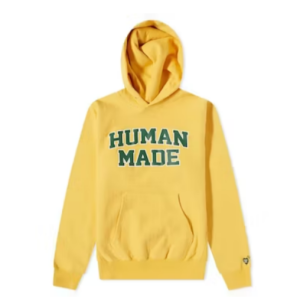The industrial coffee table has become a popular choice for modern interiors, merging rugged materials and minimalist design to create a piece that is both functional and visually striking. This style of coffee table draws its inspiration from the industrial revolution, combining elements like metal, wood, and exposed hardware to reflect the utilitarian, raw aesthetics of factory settings. As a centerpiece in a living room or office, an industrial coffee table adds character and a unique design flair, making it a must-have for those seeking an urban, modern look.
In this article, we’ll explore the appeal of industrial coffee tables, the various materials used in their construction, the benefits they offer, and how to choose the perfect one for your space.
1. What Is an Industrial Coffee Table?
An industrial coffee table is characterized by its use of raw, unfinished materials and a design that embraces simplicity and functionality. Unlike traditional coffee tables that might emphasize ornate details or polished finishes, industrial-style tables focus on rugged aesthetics, often featuring:
- Metal frameworks: Typically made from iron or steel, these frames provide a sturdy base and contribute to the industrial look with their robust, utilitarian feel.
- Reclaimed or distressed wood tops: The tabletop is often constructed from reclaimed wood or wood with a distressed finish, giving it a worn, weathered appearance that contrasts beautifully with the hard metal.
- Exposed hardware: Rivets, bolts, and screws are often left visible, enhancing the raw, mechanical vibe of the table.
The combination of these materials results in a coffee table that feels both solid and stylish, ideal for spaces that prioritize modern, minimalist, or loft-style decor.
2. Key Features of an Industrial Coffee Table
The beauty of an industrial coffee table lies in its combination of aesthetics and functionality. Here are some key features that make it stand out:
A. Sturdy Construction
One of the most appealing aspects of industrial coffee tables is their durability. Thanks to the use of materials like metal and solid wood, these tables are built to last. The heavy-duty nature of the materials means that they can withstand daily wear and tear, making them an excellent choice for busy households or commercial spaces such as cafes and offices.
- Metal base: The metal framework, typically made from steel or iron, provides a solid foundation, ensuring the table remains stable even when supporting heavy objects.
- Wooden top: The wood used for the tabletop is often thick and substantial, further enhancing the table’s durability. Reclaimed wood, in particular, is valued for its strength and eco-friendly qualities.
B. Unique Design Elements
Industrial coffee tables are known for their distinctive design elements, which set them apart from more conventional coffee tables. These design features often include:
- Raw finishes: Rather than smooth, polished surfaces, industrial tables tend to have raw or distressed finishes that celebrate the natural beauty of the materials.
- Exposed hardware: Visible bolts, rivets, and welds are not only functional but also contribute to the overall industrial aesthetic. These elements give the table a mechanical, almost handcrafted look.
- Mixed materials: The combination of metal and wood is a hallmark of industrial furniture. The contrast between the cool, sleek metal and the warmth of natural wood creates visual interest and adds depth to the piece.
C. Versatility
While industrial coffee tables have a distinctive look, they are incredibly versatile and can be incorporated into various interior design styles. Whether your space leans towards a modern loft aesthetic or a rustic farmhouse vibe, an industrial coffee table can complement and enhance the decor.
- Urban lofts: Industrial tables fit seamlessly into loft-style apartments with exposed brick, high ceilings, and large windows. The raw materials echo the architectural elements of industrial buildings.
- Modern minimalist: The clean lines and unfussy design of an industrial coffee table make it a great addition to minimalist spaces, where function and simplicity are prioritized.
- Rustic interiors: The use of wood in industrial coffee tables also makes them suitable for rustic or farmhouse-style homes, especially when paired with other wooden furniture or decor.
3. Materials Used in Industrial Coffee Tables
When selecting an industrial coffee table, understanding the materials used in its construction is crucial. The right materials not only define the table’s appearance but also its durability and functionality.
A. Metal
Metal is a key component of any industrial-style coffee table, often forming the legs, frame, or base. The most common metals used include:
- Steel: Known for its strength and durability, steel is often used to create sturdy table legs or frames. It can be left raw or powder-coated for additional protection against rust and scratches.
- Iron: Iron is another popular choice, prized for its vintage look and heavy-duty nature. Iron frames can have a more industrial, mechanical feel, especially when left in their natural state or with a matte black finish.
B. Wood
Wood is typically used for the tabletop, adding warmth and texture to the industrial design. Common types of wood used in industrial coffee tables include:
- Reclaimed wood: Salvaged from old buildings, barns, or factories, reclaimed wood offers both sustainability and a unique, weathered look. Its imperfections, such as knots, nail holes, and cracks, add character to the table.
- Solid hardwood: Oak, walnut, and acacia are popular choices for those seeking a more polished, yet still rugged, tabletop. Solid hardwoods are durable and age beautifully, developing a patina over time.
C. Glass and Concrete
Some industrial coffee tables may incorporate other materials like glass or concrete for added visual interest. Glass tops create a modern twist on the industrial look, while concrete provides a sleek, urban edge.
4. How to Choose the Perfect Industrial Coffee Table
When choosing an industrial coffee table for your space, there are several factors to consider:
A. Size and Proportion
The size of your coffee table should be in proportion to your seating area. A large industrial coffee table can serve as a statement piece in a spacious living room, while a smaller, more compact design might be more suitable for a cozier space.
- Room size: Ensure the table fits comfortably within the room without overwhelming the space. A good rule of thumb is to leave about 18 inches of space between the coffee table and surrounding furniture.
- Height: Choose a table that is the same height or slightly lower than your seating for a balanced look. Standard coffee tables are usually between 16 and 18 inches tall.
B. Functionality
Consider how you plan to use your industrial coffee table. If you need extra storage, look for tables with built-in shelves or compartments where you can store books, magazines, or remote controls.
- Storage options: Some industrial tables feature lower shelves or drawers, providing additional storage space without sacrificing style.
- Mobility: If you anticipate moving your coffee table around frequently, opt for a lighter design or one with wheels for easy maneuverability.
C. Style Compatibility
While an industrial coffee table has a distinctive look, it should still complement the overall style of your room. Consider the color scheme, furniture, and decor in your space when selecting your table.
- Mixing materials: Industrial coffee tables that combine wood and metal can bridge the gap between different styles, making them more versatile.
- Finishes: Choose finishes that match or complement your other furniture, whether it’s the raw, matte look of steel or the rich, natural finish of reclaimed wood.
5. Conclusion
The industrial coffee table is a versatile, stylish, and durable addition to any modern home or office. With its combination of sturdy materials like metal and wood, as well as its rugged design elements, it provides both function and aesthetic appeal. Whether you’re creating a cozy living room or a stylish office lounge, an industrial coffee table can serve as the perfect centerpiece.

